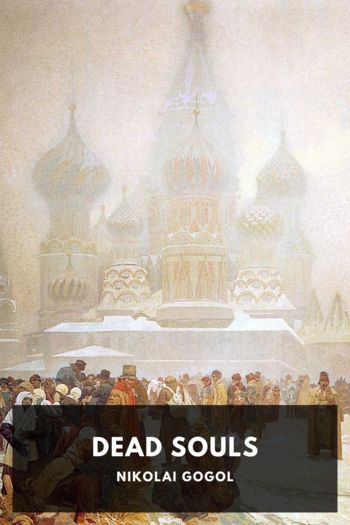Short Fiction - Nikolai Gogol (best selling autobiographies TXT) 📗

- Author: Nikolai Gogol
Book online «Short Fiction - Nikolai Gogol (best selling autobiographies TXT) 📗». Author Nikolai Gogol
But Akaki Akakievitch made no answer to all these attacks; he seemed oblivious of their presence. His work was not affected in the slightest degree; during all these interruptions he did not make a single error in copying. Only when the horseplay grew intolerable, when he was held by the arm and prevented writing, he would say “Do leave me alone! Why do you always want to disturb me at work?” There was something peculiarly pathetic in these words and the way in which he uttered them.
One day it happened that when a young clerk, who had been recently appointed to the chancellery, prompted by the example of the others, was playing him some trick, he suddenly seemed arrested by something in the tone of Akaki’s voice, and from that moment regarded the old official with quite different eyes. He felt as though some supernatural power drew him away from the colleagues whose acquaintance he had made here, and whom he had hitherto regarded as well-educated, respectable men, and alienated him from them. Long afterwards, when surrounded by gay companions, he would see the figure of the poor little councillor and hear the words “Do leave me alone! Why will you always disturb me at work?” Along with these words, he also heard others: “Am I not your brother?” On such occasions the young man would hide his face in his hands, and think how little humane feeling after all was to be found in men’s hearts; how much coarseness and cruelty was to be found even in the educated and those who were everywhere regarded as good and honourable men.
Never was there an official who did his work so zealously as Akaki Akakievitch. “Zealously,” do I say? He worked with a passionate love of his task. While he copied official documents, a world of varied beauty rose before his eyes. His delight in copying was legible in his face. To form certain letters afforded him special satisfaction, and when he came to them he was quite another man; he began to smile, his eyes sparkled, and he pursed up his lips, so that those who knew him could see by his face which letters he was working at.
Had he been rewarded according to his zeal, he would perhaps—to his own astonishment—have been raised to the rank of civic councillor. However, he was not destined, as his colleagues expressed it, to wear a cross at his buttonhole, but only to get hæmorrhoids by leading a too sedentary life.
For the rest, I must mention that on one occasion he attracted a certain amount of attention. A director, who was a kindly man and wished to reward him for his long service, ordered that he should be entrusted with a task more important than the documents which he usually had to copy. This consisted in preparing a report for a court, altering the headings of various documents, and here and there changing the first personal pronoun into the third.
Akaki undertook the work; but it confused and exhausted him to such a degree that the sweat ran from his forehead and he at last exclaimed: “No! Please give me again something to copy.” From that time he was allowed to continue copying to his life’s end.
Outside this copying nothing appeared to exist for him. He did not even think of his clothes. His uniform, which was originally green, had acquired a reddish tint. The collar was so narrow and so tight that his neck, although of average length, stretched far out of it, and appeared extraordinarily long, just like those of the cats with movable heads, which are carried about on trays and sold to the peasants in Russian villages.
Something was always sticking to his clothes—a piece of thread, a fragment of straw which had been flying about, etc. Moreover he seemed to have a special predilection for passing under windows just when something not very clean was being thrown out of them, and therefore he constantly carried about on his hat pieces of orange-peel and such refuse. He never took any notice of what was going on in the streets, in contrast to his colleagues who were always watching people closely and whom nothing delighted more than to see someone walking along on the opposite pavement with a rent in his trousers.
But Akaki Akakievitch saw nothing but the clean, regular lines of his copies before him; and only when he collided suddenly with a horse’s nose, which blew its breath noisily in his face, did the good man observe that he was not sitting at his writing-table among his neat duplicates, but walking in the middle of the street.
When he arrived home, he sat down at once to supper, ate his cabbage-soup hurriedly, and then, without taking any notice how it tasted, a slice of beef with garlic, together with the flies and any other trifles which happened to be lying on it. As soon as his hunger was satisfied, he set himself to write, and began to copy the documents which he had brought home with him. If he happened to have no official documents to copy, he copied for his own satisfaction political letters, not for their more or less grand style but because they were directed to some high personage.
When the grey St. Petersburg sky is darkened by the veil of night, and the whole of officialdom has finished its dinner according to its gastronomical inclinations or the depth of its purse—when all recover themselves from the perpetual scratching of bureaucratic pens, and all the cares and business with which men so often needlessly burden themselves, they devote the evening to recreation. One goes to the theatre;





Comments (0)